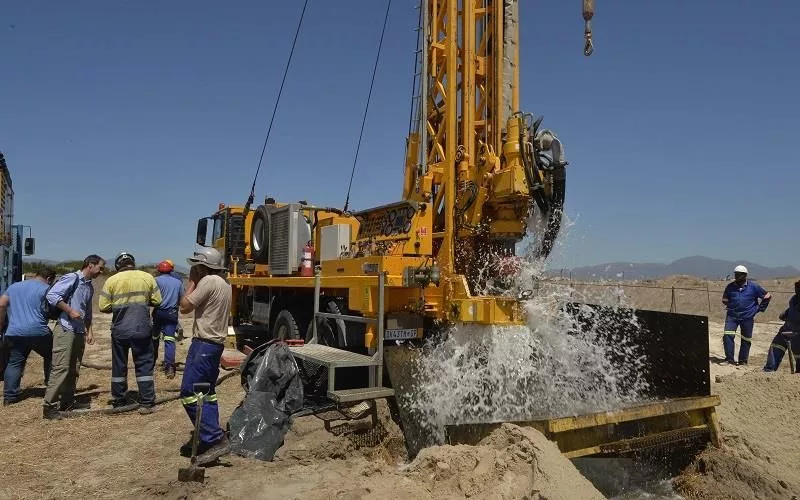The New Water Program aims to provide an additional 300 million liters of fresh water daily by 2030 to secure a resilient water supply for the city’s growth. Cape Town has had a successful water security program amidst climate change, including water re-use, desalination, and invasive species removal. Even with dam levels over 90%, the fixed basic charge for water services remains necessary, and the city is committed to a water-secure future despite the challenges of climate change.
Embracing the Deluge: Cape Town’s Success in Water Security Amidst Climate Change. Learn about Cape Town’s success in water security amidst climate change with a diversified water program including water re-use, desalination, and removal of invasive plant species. The New Water Program aims to provide an additional 300 million liters of fresh water daily by 2030, securing a resilient water supply for the city’s growth.
As dawn broke over Cape Town in July 2024, the city witnessed an extraordinary rainfall. The torrential downpour was unlike anything the city had seen before, causing the city’s dams to refill by a staggering 20% in just one week. This pushed dam capacities to 95.2%, instilling a spark of hope amidst the city’s residents. While the dam levels were slightly higher at 99% the previous year, the recent heavy rainfall has provided the city with a reason to maintain careful optimism.
Praise Worthy: Wemmershoek Dam’s Record-Breaking Rainfall
One dam that stands out amidst this narrative is the renowned Wemmershoek Dam. The dam was inundated with an impressive 460mm of rainfall in the first half of July 2024, shattering the previous record of 433.5mm, which was set in 1992. This torrent led to a 25% increase in dam levels, a rate of growth that has only been surpassed once since 2008, when dam levels increased by 30% in June 2023.
However, the City’s administration, cognizant of the unpredictable nature of climate change and its irregular rain patterns, refrains from considering this a definitive solution to water scarcity. The Water and Sanitation Directorate is steadfastly pursuing the New Water Programme (NWP), an initiative designed to secure a resilient and water-secure future for the residents of Cape Town.
Embracing Diversification: Cape Town’s New Water Program
As Councillor Zahid Badroodien, the City’s Mayoral Committee Member for Water and Sanitation, stated, “While we welcome the heavy rainfall that has filled our dams, we recognize that it is not a sustainable solution for water security”. The city has learned from past experiences that it cannot solely rely on dams for its water supply, and is thus investing in the New Water Programme. This extensive program includes several initiatives that aim to provide an additional 300 million litres of fresh water daily by 2030, as a safeguard against future climate variations and droughts.
The NWP includes multiple strategies, each designed to decrease Cape Town’s reliance on rainfall and dam storage. These strategies encompass water re-use, desalination, removal of invasive plant species, various management interventions, and groundwater drilling, each contributing a significant daily quota to the city’s water supply.
Councillor Badroodien underscored the significance of a resilient water supply for the city’s growth and its ability to attract further investment. He also acknowledged the residents’ part in securing a water-stable future, expressing gratitude for their efforts, ranging from prompt payment of water bills to making water-conscious decisions on a daily basis.
Understanding Water Tariffs: A Key Component of Water Management
The water tariffs currently range from an average of 6c-8.5c per litre. This cost is essential for maintaining the existing infrastructure and ensuring the continuous provision of reliable water services to Cape Town. Importantly, these tariffs cover not only the volumetric usage but also a fixed basic charge, which is incurred to cover the costs of delivering a reliable water supply.
Recognizing the pivotal role of dams and tariffs in the city’s water management strategy is crucial. Despite dam levels being over 90% full, the fixed basic charge is still needed to guarantee the city’s ability to provide reliable water services. Any decrease in this charge would result in a significant deficit, mandating a considerable increase in the standard usage part of the tariff.
For those wondering whether tariffs will be adjusted with dams being over 90% full, the answer is ‘no’. The costs of water services stay mostly unchanged, regardless of the volumetric usage or dam levels. The lowest tariff (no restriction) has remained in effect since 1 November 2020.
A Commitment to the Future: Cape Town’s Resilient Water Strategy
The dedication of the City to ensure a water-secure future for its residents is commendable, with the ongoing efforts of the NWP acting as proof of this commitment. Despite the challenges that climate change presents, Cape Town continues to strive for a resilient and secure water future.
- What is Cape Town’s New Water Program?
- Cape Town’s New Water Program is an initiative designed to secure a resilient and water-secure future for the city’s growth, aiming to provide an additional 300 million litres of fresh water daily by 2030.
- What strategies are included in the New Water Program?
- The New Water Program includes strategies such as water re-use, desalination, removal of invasive plant species, various management interventions, and groundwater drilling, each contributing a significant daily quota to the city’s water supply.
- Are water tariffs in Cape Town affected by dam levels?
- No, the water tariffs in Cape Town remain mostly unchanged regardless of the volumetric usage or dam levels. The fixed basic charge is still necessary to guarantee the city’s ability to provide reliable water services.
- Why is the fixed basic charge necessary for water services in Cape Town?
- The fixed basic charge is necessary to cover the costs of delivering a reliable water supply and maintaining the existing infrastructure, even with dam levels over 90%.
- How has Cape Town been successful in water security amidst climate change?
- Cape Town has been successful in water security amidst climate change through a diversified water program including water re-use, desalination, and removal of invasive plant species, and a commitment to a water-secure future despite the challenges of climate change.
- What is the significance of Wemmershoek Dam in Cape Town’s water security program?
- Wemmershoek Dam stands out in Cape Town’s water security program as it received a record-breaking rainfall, leading to a 25% increase in dam levels. However, the City’s administration continues to pursue the New Water Programme as a safeguard against future climate variations and droughts.











